The undiscovered quality stock in the ASX
Whitehaven Coal (ASX: WHC) has had a volatile history, touching extreme lows and highs; from an unloved anti-ESG, old-economy miner facing an uncertain future, to capturing a Russian sanction-induced squeeze to record coal prices as the world looked for energy security.
Given this volatile history, the miner has not been ubiquitous with the definition of a quality commodity producer. However, the recent acquisition from BMA (50% owned by BHP) of 2 lower-cost, long-life, quality metallurgical coal mines (Daunia and Blackwater) without requiring an equity capital raise is truly transformative for WHC.
At Blackwattle Mid Cap Quality, we view the market through a quality lens, targeting the market leaders in each sector. We believe our singular focus on quality is our competitive advantage, identifying quality early, quality improving and quality enduring, better than the market. We view WHC as a prime example of quality improvement, with the transformative acquisition firmly placing WHC as a market-leading, high-quality, commodity producer with significant levers for value creation.
We discuss the key quality improvements to the WHC business model:
Improving portfolio quality
The acquisition of the Daunia and Blackwater met. coal mines have allowed WHC to double production and improve the quality of WHC’s portfolio. Mining operations face continuous operational risks (weather, accidents etc.) and diversifying from 2 producing mines to 4 while doubling production, significantly reduces operational risk.
The acquired coal mines also improve the average quality of WHC’s portfolio, given they are lower cost, long life and produce strong margins through the cycle.
WHC also get the added optionality of improving operations given the underwhelming production in recent years, hampered by COVID restrictions, underperforming contractors and weather.
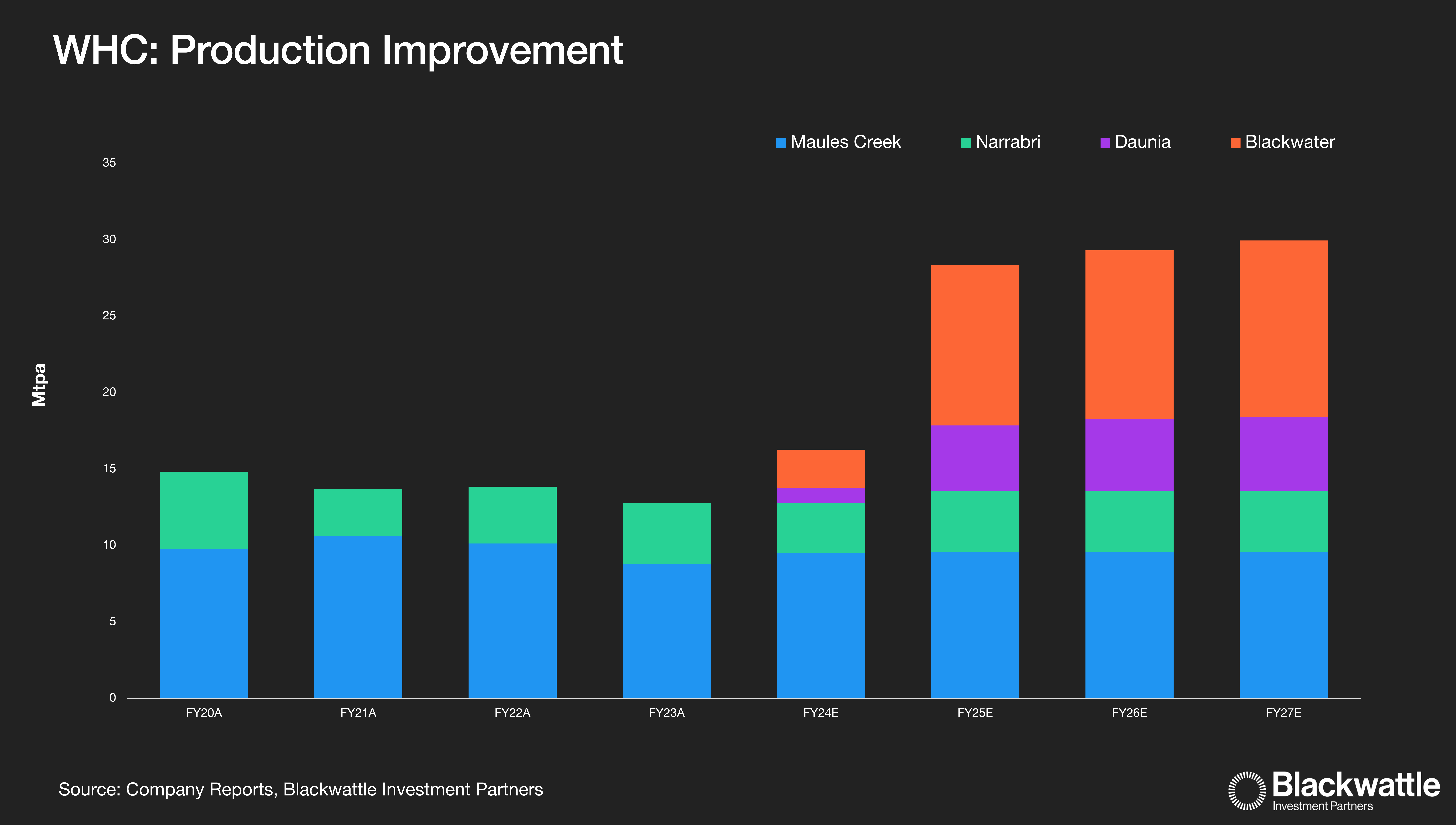
Source: Company Reports, Blackwattle Investment Partners
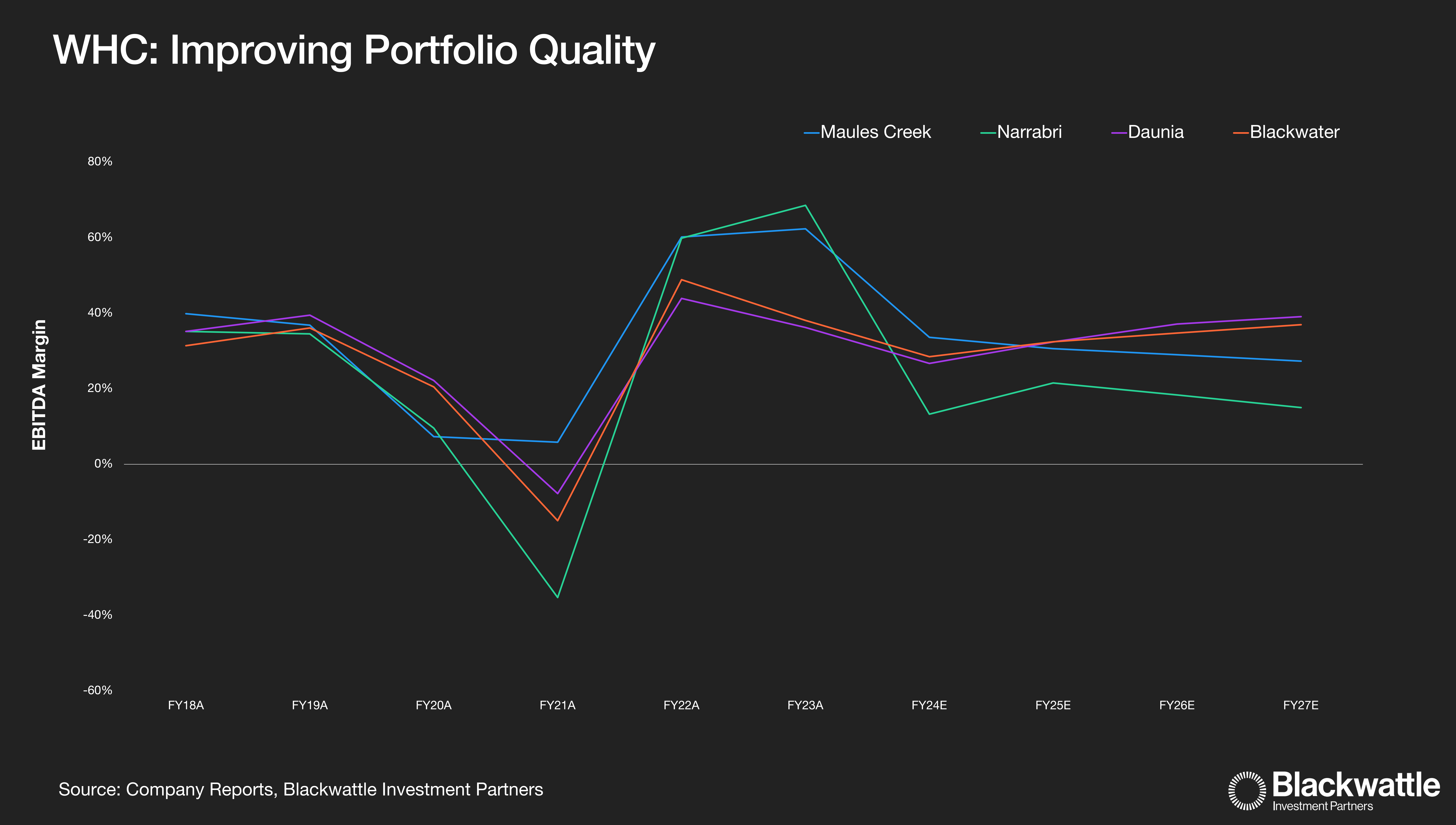
Source: Company Reports, Blackwattle Investment Partners
Shifting away from thermal coal
WHC was a predominately thermal coal miner and was seen as an unloved anti-ESG, old-economy miner facing an uncertain future.
The acquisition has transformed WHC into a metallurgical coal miner, and thermal coal revenues are now only expected to be ~30% of the group, potentially opening the register to new investors.
Met. coal miners have also traded at 1-2x EV/EBITDA multiples premiums to thermal coal miners, which is significant given the starting point of only 2-3x EV/EBITDA valuation multiples for thermal coal miners.
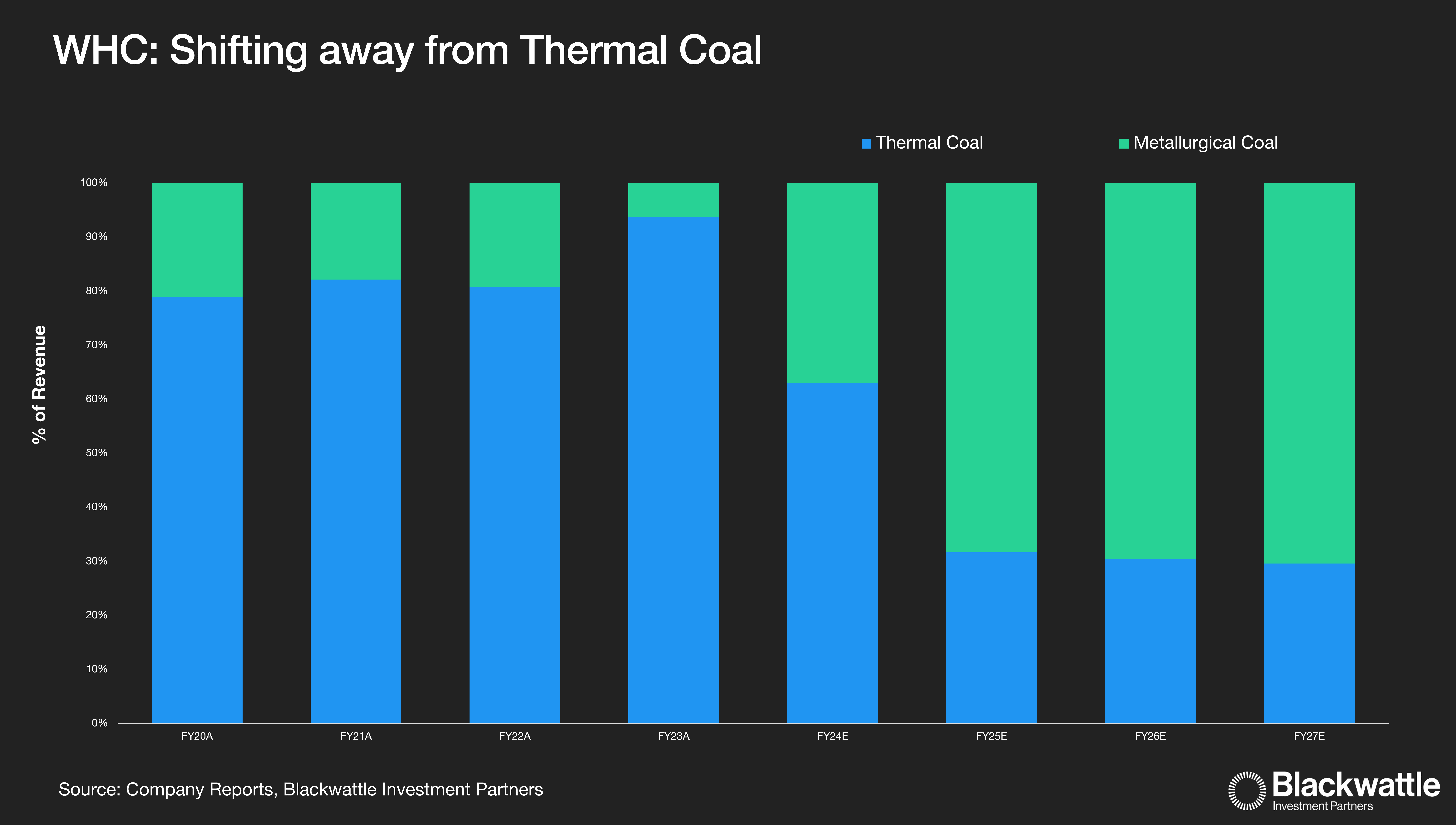
Exposure to structural growth
The shift towards metallurgical coal production for WHC also improves the outlook for the business, given metallurgical coal is higher priced and with a strong supply/demand outlook.
While the thermal coal price outlook is based on shrinking demand supported by even faster reduction in supply, the metallurgical coal outlook has strong demand dynamics, driven by India and SE Asia.
India’s steel production is expected to double in the current decade, and given India relies on met. coal imports (largely self-sufficient in iron ore), this will provide a significant demand support for the seaborne metallurgical coal.
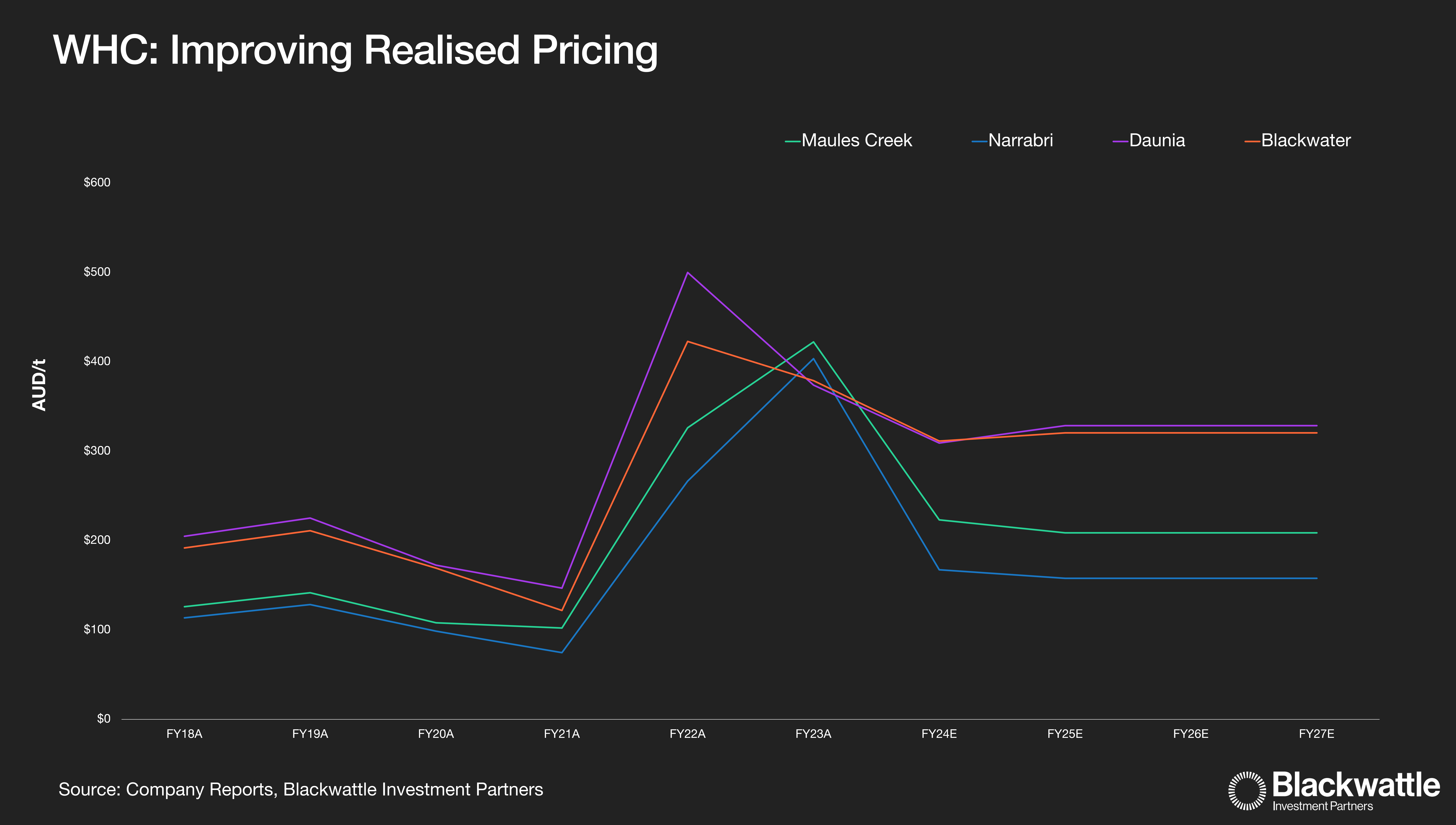
Source: Company Reports, Blackwattle Investment Partners
Strong capital allocation
Capital allocation is a key value driver for commodity producers. Given commodity producers face a continuous race to replenish dwindling reserves, the capital allocation decision to reinvest current cashflows is of utmost importance.
We believe WHC’s deal with BMA is a masterclass in capital allocation. WHC had been relatively prudent in utilising the recent windfall of the Russian sanction-induced squeeze in coal prices: paying off debt, building a $2.7 billion cash war chest, and buying back ~19% of the share outstanding. WHC has been able to use this $2.7 billion cash war chest as well as utilising external debt and vendor financing from BMA (US$1.1 billion of US$3.2 billion purchase price paid over 3 years using cashflows from the acquired mines).
This has meant WHC has effectively doubled production without an equity raise, which should deliver a significant improvement in return on capital through the cycle.
WHC is now focused on debt reduction, with a possible selldown in the Blackwater mine to a strategic customer (at a premium) potentially paying down all the recently raised external debt.
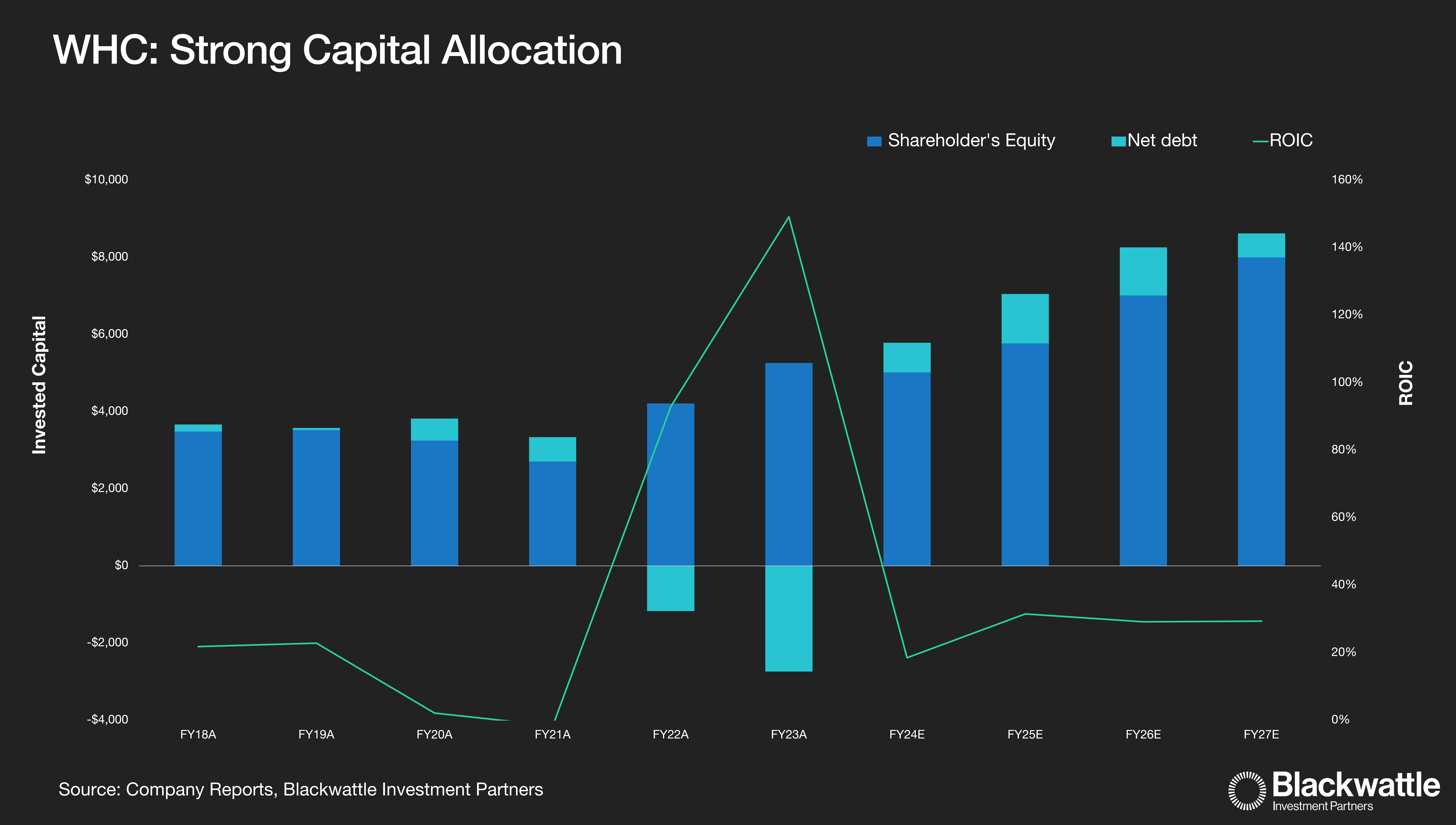
This piece was co-authored by Michael Teran and Tim Riordan.
5 topics
1 stock mentioned
1 contributor mentioned

